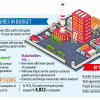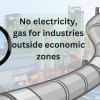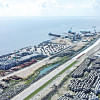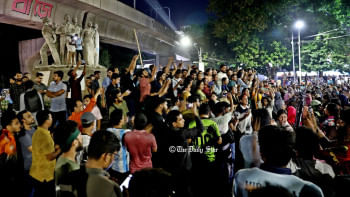Investors in hi-tech parks, EZs may lose tax benefits

Investors in the economic zones and hi-tech parks in Bangladesh may see an end to the zero-duty benefit on imports of capital machinery, components and construction materials next fiscal year.
The move comes as part of a continued push by the National Board of Revenue (NBR) to increase revenue collection.
As such, firms operating in industrial enclaves may need to pay 1 percent customs duty for importing capital machinery, components and other equipment in fiscal 2024-25, according to NBR officials.
Additionally, the NBR could impose supplementary duty and regulatory duty on vehicles imported by firms based in economic zones and hi-tech parks, they said.
However, the investors may enjoy exemption from payment of 25 percent customs duty on car import.
"We are working to place the proposals as duty measures for the next fiscal year with the objective of coming out of the culture of tax breaks," said a senior official of the NBR, seeking anonymity.
The move comes at a time when the government is under pressure to improve revenue collection for financing public expenditure and reducing its reliance on borrowing.
Bangladesh has one of the lowest revenue-GDP ratios in the world and the International Monetary Fund, as part of its $4.7 billion loan, has given a condition to the government to increase tax collection by 0.5 percent of the GDP.
Currently, investors of these industrial enclaves are enjoying duty-free facilities, including customs, supplementary, regulatory and others duty waivers ranging from 89 percent to 700 percent depending on the CC of the vehicle.
Similarly, the government is likely to tighten the rules regarding the investors' corporate taxes.
"We will take steps in a rational way from the next fiscal year," said an NBR official.
In 2015, the government offered a 10-year tax waiver for investors in hi-tech parks in an effort to promote investment and youth employment.
Under the scheme, investors in the parks got full tax breaks for the first three years of their operations, after which the benefit was schedule to decline gradually before being fully phased out in the 11th year.
The developers of hi-tech parks also enjoyed a full tax break for 10 years starting from when they began operations at the parks, according to the NBR official.
In fiscal 2015-16, the-then Finance Minister AMA Muhith shared the government's plan in his budget speech to provide special packages to encourage investment in developing economic zones and hi-tech parks.


 For all latest news, follow The Daily Star's Google News channel.
For all latest news, follow The Daily Star's Google News channel. 







Comments